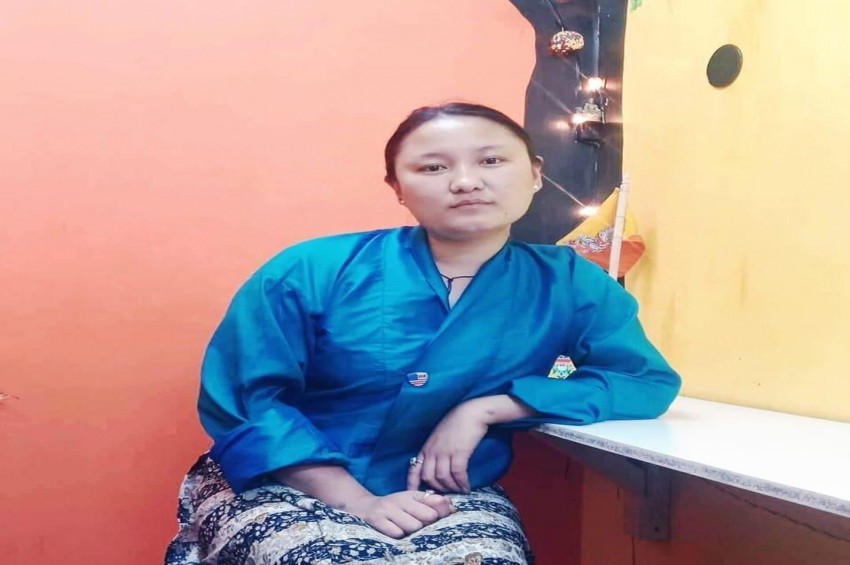On the morning of May 25, 2022, Prime Minister (PM) Dr. Lotay Tshering spoke to staff and students of Sherubtse College, in a hall that was filled to the brim and on topics that ranged from roles every individual can play in nation building to the importance of the reforms in the civil service and education. The PM also took questions from the students and in the words of a student “clarified several doubts, circulating on social media”.
President of the College’s Forum for International and National Awareness (FINA), Yeshi Chedrup, a third year student undertaking B.A in History, said he and many others clearly understood the current state of Bhutan; the importance of reforms undertaken and how Bhutan is at a very important point in its history with several important transitions taking place. “The PM clearly spelled out the roles we need to play and said that preparations have to begin from now itself and emphasized that every Bhutanese can play a significant role,” he said.
Similarly, Deki Lhazom, FINA Secretary, a second year student pursuing B.Sc in Life Science said “almost every one who attended the talk understood where Bhutan currently stands and the important roles every one should and can play.”
While underlining that everything the PM said was important, Deki mentioned that the PM informing students and staff about the pros and cons of social media was very important. “Today we are connected and social media has become the informant. The PM said that though social media is an important part of our society it cannot be fully trusted and that people especially the youth can come across many misleading and false information every day,” she said, adding that the PM highlighted the need to be media literate, understand the context of the news and others.
Meanwhile, Yeshi said that the PM highlighted the opportunities and support the government gave and would provide to youths taking up entrepreneurship. “It was very encouraging to learn that there are other opportunities besides just being a civil servant and that the government would support those who are genuinely interested,” he said.
Speaking along the same lines, Deki said the PM elaborated about the economy and unemployment rate of youths, especially the graduates. “He also talked about the importance of becoming entrepreneurs rather than being civil servants. The PM said that rather than being an employee we can be employers,” Deki added.
When asked how important it is for the students as future leaders to have leaders visiting the college, Yeshi said it is very important. “We hardly get such opportunities and the visits of leaders are part of our learning process. From the PM’s visit, we learned a lot; more than what we could not have learned in months,” he said, adding it was a golden opportunity for students to have such a platform to raise concerns, ask questions to the head of the government regarding the future and general concerns about the nation.
Deki also said such visits are very important. “It is very important for us as it helps us to clear our questions and doubt. Through such visits we know how and why certain things are happening around us because it will directly or indirectly influence us and people around,” she said, adding that such visits are also motivating factors.
While Yeshi said that the PM’s visit has inspired “the young minds at the peak of learning,” who are now ready and resilient to take up any responsibilities required for the nation, Deki said that apart from this, students have learned what true responsibility is. “Do not always depend on one thing but rather be open and have alternative plans in life. Be open-minded in this changing world and go hand in hand with the technology, are other messages that the PM’s visit has infused in me and others”, Deki said.
Meanwhile, students also asked the PM several questions, some of which were the PM’s view on the effectiveness of the GNH screening tool and if socio-egalitarian policies are compatible with GNH.
Tsewang Dorji, studying economics asked the PM about Bhutan’s current economy, sources of revenue and substitutes for hydropower and tourism. Sangay Thinley, another economics students asked about the national debt and the pending works to be done, specifying what would happen if hydropower loans can’t be paid back with climate change affecting it.
Other questions concerned fuel price, hydropower projects, budgeting, new educational reforms, unemployment rate in Bhutan were asked
“The answers were convincing and supported by data and the PM said that no new project hydropower projects will be established until the currently existing hydropower are made more reliable for our country,” Yeshi said.
What really impacted the students was the importance that the PM gave to students. “During the morning session, some could not have their questions answered due to lack of time. Due to this, the PM had another interaction with students in the evening,” Yeshi said. “We were very happy and felt special as the PM sacrificed some of his very precious time to listen to every student,” Deki added.
President of the College’s Forum for International and National Awareness (FINA), Yeshi Chedrup, a third year student undertaking B.A in History, said he and many others clearly understood the current state of Bhutan; the importance of reforms undertaken and how Bhutan is at a very important point in its history with several important transitions taking place. “The PM clearly spelled out the roles we need to play and said that preparations have to begin from now itself and emphasized that every Bhutanese can play a significant role,” he said.
Similarly, Deki Lhazom, FINA Secretary, a second year student pursuing B.Sc in Life Science said “almost every one who attended the talk understood where Bhutan currently stands and the important roles every one should and can play.”
While underlining that everything the PM said was important, Deki mentioned that the PM informing students and staff about the pros and cons of social media was very important. “Today we are connected and social media has become the informant. The PM said that though social media is an important part of our society it cannot be fully trusted and that people especially the youth can come across many misleading and false information every day,” she said, adding that the PM highlighted the need to be media literate, understand the context of the news and others.
Meanwhile, Yeshi said that the PM highlighted the opportunities and support the government gave and would provide to youths taking up entrepreneurship. “It was very encouraging to learn that there are other opportunities besides just being a civil servant and that the government would support those who are genuinely interested,” he said.
Speaking along the same lines, Deki said the PM elaborated about the economy and unemployment rate of youths, especially the graduates. “He also talked about the importance of becoming entrepreneurs rather than being civil servants. The PM said that rather than being an employee we can be employers,” Deki added.
When asked how important it is for the students as future leaders to have leaders visiting the college, Yeshi said it is very important. “We hardly get such opportunities and the visits of leaders are part of our learning process. From the PM’s visit, we learned a lot; more than what we could not have learned in months,” he said, adding it was a golden opportunity for students to have such a platform to raise concerns, ask questions to the head of the government regarding the future and general concerns about the nation.
Deki also said such visits are very important. “It is very important for us as it helps us to clear our questions and doubt. Through such visits we know how and why certain things are happening around us because it will directly or indirectly influence us and people around,” she said, adding that such visits are also motivating factors.
While Yeshi said that the PM’s visit has inspired “the young minds at the peak of learning,” who are now ready and resilient to take up any responsibilities required for the nation, Deki said that apart from this, students have learned what true responsibility is. “Do not always depend on one thing but rather be open and have alternative plans in life. Be open-minded in this changing world and go hand in hand with the technology, are other messages that the PM’s visit has infused in me and others”, Deki said.
Meanwhile, students also asked the PM several questions, some of which were the PM’s view on the effectiveness of the GNH screening tool and if socio-egalitarian policies are compatible with GNH.
Tsewang Dorji, studying economics asked the PM about Bhutan’s current economy, sources of revenue and substitutes for hydropower and tourism. Sangay Thinley, another economics students asked about the national debt and the pending works to be done, specifying what would happen if hydropower loans can’t be paid back with climate change affecting it.
Other questions concerned fuel price, hydropower projects, budgeting, new educational reforms, unemployment rate in Bhutan were asked
“The answers were convincing and supported by data and the PM said that no new project hydropower projects will be established until the currently existing hydropower are made more reliable for our country,” Yeshi said.
What really impacted the students was the importance that the PM gave to students. “During the morning session, some could not have their questions answered due to lack of time. Due to this, the PM had another interaction with students in the evening,” Yeshi said. “We were very happy and felt special as the PM sacrificed some of his very precious time to listen to every student,” Deki added.















